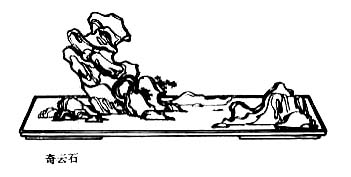Lun Yu 
 – Les Entretiens de Confucius
– Les Entretiens de Confucius
Le Maître échange propos, anecdotes, brèves paraboles et maximes avec ses disciples. Tr. Couvreur (fr), Legge (en) et Lau (en).
Lunyu V. 15. (107)
Tzeu koung demanda pourquoi K'oung Wenn tzeu1 avait reçu après sa mort le nom de Wenn, le « Cultivé ». Le Maître répondit : « Bien qu'il fût très intelligent, il aimait à être enseigné ; il n'avait pas honte d'interroger même ses inférieurs. C'est pour cette raison qu'il a reçu le nom posthume de Wenn. »
Couvreur V.14.
An example of the principle on which honorary posthumous titles were conferred.
Tsze-kung asked, saying, "On what ground did Kung-wan get that title of WAN?" The Master said, "He was of an active nature and yet fond of learning, and he was not ashamed to ask and learn of his inferiors! – On these grounds he has been styled WAN."
Legge V.14.
Tzu-kung asked, 'Why was K'ung Wen Tzu called "wen"?'
The Master said, 'He was quick and eager to learn: he was not ashamed to seek the advice of those who were beneath him in Station. That is why he was called "wen".'
Lau [5:15]
Nabi menjawab, "Ia seorang yang pandai, tetapi suka belajar dan tidak malu bertanya sekalipun kepada bawahannya. Maka ia diberi gelar Pujangga".

Les Entretiens de Confucius – Lun Yu V. 15. (107) – Chinois off/on – Français/English
Alias the Lunyu, the Lun Yü, the Analects, les Entretiens du maître avec ses disciples.
Le Canon des Poèmes, Les Entretiens, La Grande Étude, Le Juste Milieu, Les Trois Caractères, Le Livre des Mutations, De la Voie et la Vertu, 300 poèmes Tang, L'Art de la guerre, Trente-six stratagèmes
Bienvenue, aide, notes, introduction, table.
Index – Contact – Haut de page























